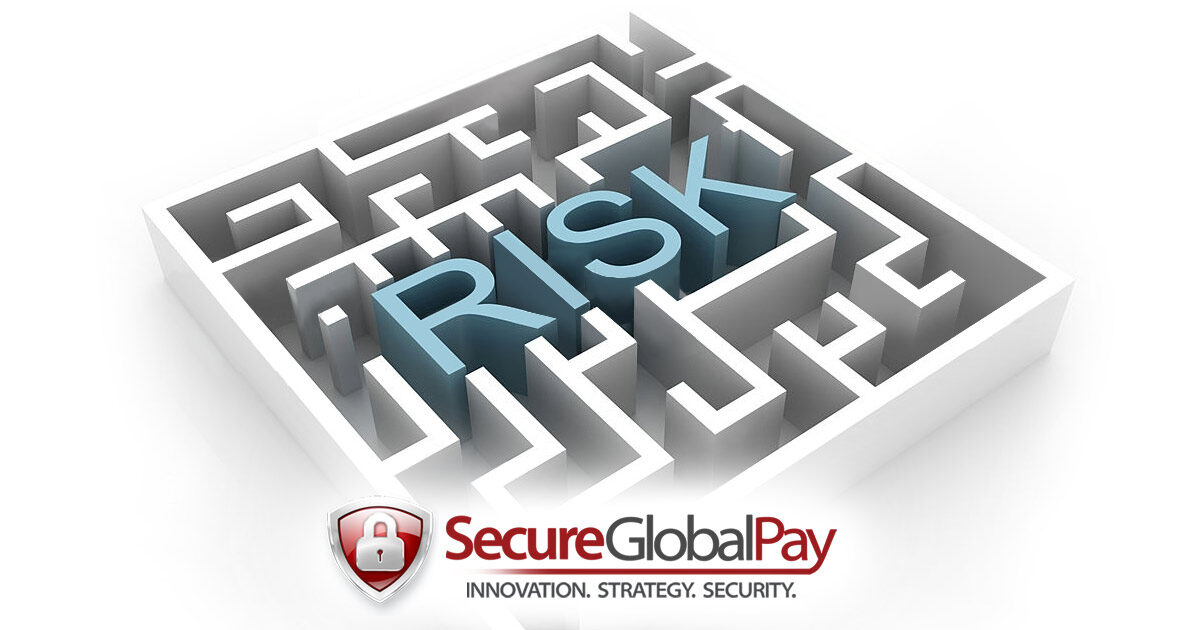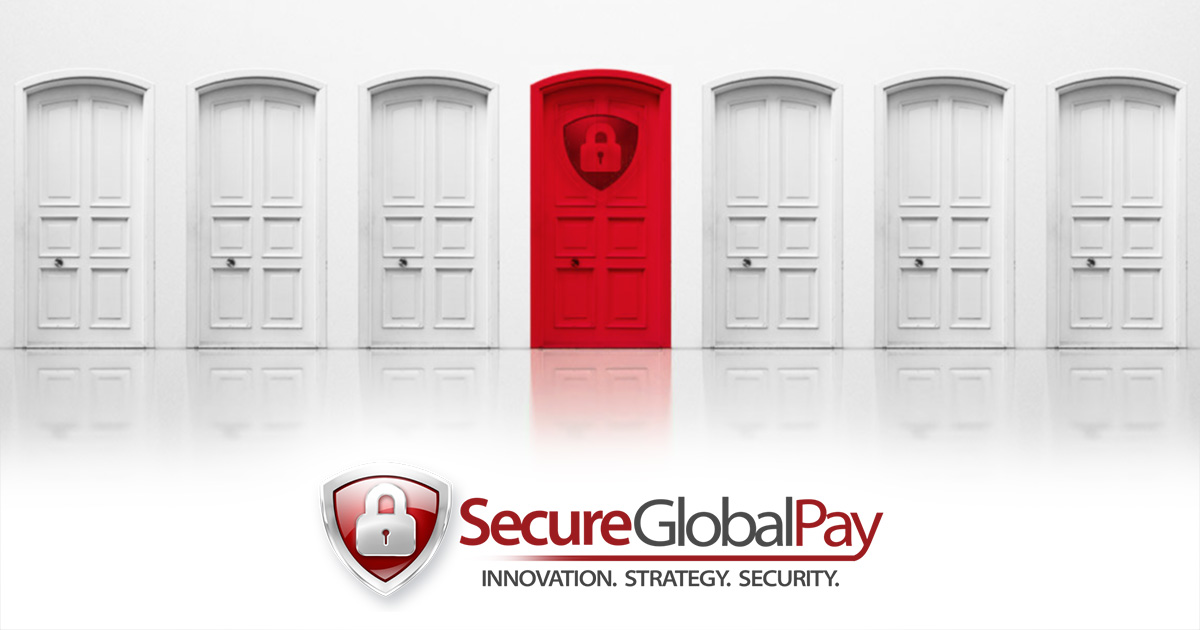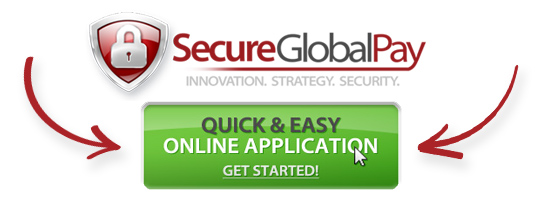
High-Risk Payment Services – High-Risk Merchants Are Risky Business
Why do certain industries face more challenges than others? The answer is a simple one. When banks and payment companies see a huge amount of risk in your industry, they are simply not willing to offer their merchant account payment services to you. SecureGlobalPay is a high-risk merchant payment processing service provider with intelligent payment gateway routing via the best payment gateway for high risk business. With our vast network of acquiring bank relationships, we are able to place your business with the most appropriate payment processor in the shortest amount of time possible.
In banking circles, a high-risk industry is an industry that attracts a high number of canceled payments, refunds, and chargebacks when accepting card payments.
Banks and payment service providers understand the risks associated with processing payments for any business, but a majority of them stay away from high-risk companies because the level of risk is way higher than other businesses.
If your business falls into a category that banks want to avoid at all costs, concentrate instead on those processors that specifically offer high-risk payment processing solutions catering to your specific business type.
Unlike 3rd party processors that grant instant account approvals to high-risk merchants only to terminate their accounts after a follow-up underwriting process, high-risk payment service providers thoroughly investigate your business from the very beginning before approving your high-risk merchant account.

What is High-Risk Payment Processing?
High-risk payment processing is a type of merchant account that allows businesses to accept payments from customers who have bad credit, or no credit history.
The high-risk merchant payment processing service provider industry has been growing rapidly since the late 2000s. This is because there are many different types of businesses that process high-risk payments, and they all have different requirements.
High-risk accounts are typically used by businesses that sell items or services that tend to be more popular with thieves and fraudsters or result in higher than normal levels of chargebacks. They are far more lenient and flexible than standard payment processors.
Some Examples of High-Risk Businesses That Find it Difficult to Receive Approvals for Merchant Accounts:
- Online gaming merchant accounts for high risk sites
- Pharmaceutical companies
- Adult merchant accounts for the entertainment businesses
These businesses require support in the form of high-risk payment processing. High-risk payment processing is a type of merchant account service that caters to businesses that may have a higher chance of having chargebacks filed against them.
There are generally two types of high-risk payment service providers: direct merchant accounts and third-party processor merchant accounts. Direct merchant accounts are those which are provided by the bank or financial institution where you have your business checking account. Third-party processors act as middlemen between you and the service providers, basically giving you access to their network of acquiring banks banks and credit underwriters in exchange for a fee.
The main difference between a high-risk merchant payment processing service provider is how they handle fraud protection services.
If you’re using a direct merchant account, you will be better equipped to manage your merchant ID to help manage your risk by reducing your chargebacks and limiting fraudulent transactions.
Whereas if you’re using an aggregator like a Stripe merchant account accepting online payments, PayPal or other, you are in essence processing under their merchant ID. By doing so, you have very little to no control over how they handle your excessive chargebacks or fraudulent transactions. In most cases, your merchant account will be terminated without question. It’s extremely important to know the difference between a merchant aggregator vs a merchant account.
What is Considered a High-Risk Business?
First, let’s talk about what types of businesses are considered high-risk by the payment processing industry. Then we can consider how you can minimize your risk-reward ratio as a business owner or merchant.
Businesses that sell products or services to consumers are considered high-risk because they have more opportunities for fraud than businesses that sell exclusively to other businesses.
Some examples of typical high-risk industries include: online retailers, retail stores and restaurants, travel agencies, telephone sales companies, and insurance companies. However, there are many types of businesses that could be considered high-risk. Some examples are below:
- Businesses that deal with cash and/or cash equivalents.
- Businesses that deal with foreign exchange and/or international payments.
- Businesses that deal with the sale or purchase of goods or services online or over the phone.
- Businesses that sell items (such as cars, jewelry, and artwork) that could be easily resold for cash.
- Businesses that accept payment in any form other than cash (such as credit cards).
While not all-inclusive, the above gives you a clear picture of what is considered a high-risk business. A lot more businesses are affected than people generally realize.

Why High-Risk Merchants Need High-Risk Payment Services
Let us look at 4 major reasons why merchants need high-risk payment services:
- The type of high-risk business-the nature of a business determines if it carries a higher risk of exposure
- Merchant reputation-the standing of a merchant within the industry or in the public eye carries plenty of weight.
- Compliance-Is the business complying with industry standards, following legal procedures, or committed to a certain level of infrastructure?
- Business size/Sales volume-how many transactions does the business process on a monthly basis? Merchants processing high volumes or transaction should most certainly apply for high-risk high volume merchant accounts only.
Let us examine each of these points in detail and dive deep into how a high-risk merchant payment processing service provider accesses the risks of hard-to-place merchants.

Do I Need High-Risk Payment Services for my Business?
High-risk payment services are designed to help businesses that accept payments online, by phone, or in other ways from customers. If you’re a high-risk merchant, you can use these services to make it easier for your customers to pay you, even if you don’t have good credit.
How do I know if my Business is High-Risk?
When you’re starting a business, you need to be able to accept payments. Whether it’s a one-person operation or a large corporation, you’ll need a way to get money in and out of your company’s accounts.
But there are different ways to do that. Depending on the type of business you have and the types of customers you deal with, you may need high-risk payment processing services. This doesn’t mean your company is bad, but more that you are at a higher risk of credit card fraud and chargebacks.
What Are High-Risk Payment Services?
High-risk payment services help businesses accept payments if the business accepts payments in high- risk forms or from people who are considered “high-risk.”
If your business accepts some form of payment from consumers who may have bad credit or no credit, or could even be scammers, then you’re a high-risk merchant. Some examples high risk merchant accounts online include:
- Car dealerships, that sell expensive items on installment plans that require financing;
- Property management companies and landlords, who rent out apartments and houses;
- Cable companies and other utility providers;
- Service providers like plumbers, contractors, and other home improvement professionals;
- Any company that provides loans or lines of credit to its customers
High-risk payment services are a great option for businesses that have a high-risk of fraud or chargebacks. They can also be used as an alternative to accepting credit cards, which can be expensive and complicated.
Accepting credit cards is one of the biggest challenges facing small businesses today. Credit card processors charge anywhere from 2% to 4% per transaction, plus additional fees for things like monthly statements or check processing.
Yet, the biggest risk is chargebacks and account restrictions, which is where high-risk providers come into their own and provide a different level of service and protection.

What is a High-Risk Merchant Service Provider?
“High-risk merchants” is a term used to describe businesses that are more likely to have chargebacks, fraud, and other payment issues.
A high-risk merchant payment processing service provider is an online payment processing company that specializes in working with businesses like these.
These services help mitigate the risk of accepting credit card payments from customers who might not be able to pay their bills, or who may be committing fraud. Below are some of the advantages:
Chargeback Mitigation
If a customer has a problem with a purchase, they may ask their bank or credit card company for a chargeback, which will reverse the transaction and refund the money back to them. The merchant loses this money, as well as any fees associated with processing the transaction. High-risk merchants can often turn to a payment gateway for high risk business or chargeback mitigation company that will help route their transactions properly, and possibly even reimburse them for these losses and keep them from losing more money in the future.
Card Verification Solutions (CVS)
Credit cards come with security chips now, which makes them much safer than swiping magnetic stripes on the back of cards. But while they’re safer, they’re not foolproof — hackers can still find ways around chip technology and break into your system if you don’t have the right measures in place (such as encryption).
A high-risk merchant payment processing service provider often charges higher fees because their customers have a greater chance of being victims of fraudulent transactions.
The providers also need to meet certain government standards to provide the services. If you are considering getting a high-risk merchant account, it’s important to choose wisely so that you don’t end up paying more than you need to.
The first thing you should do when looking for a high-risk merchant service provider is look at their rates. This will give you an idea of how much they charge per transaction and what are their monthly minimums.
You should never sign up for an account without knowing these two things upfront because they will help determine whether or not your business is profitable enough to justify having an account with them.
Next, look at how long it takes them to process transactions. Some companies may take longer than others, which could result in lost sales if customers don’t know how long they have to wait before they get paid back by their credit card company.

Do Third Party Payment Processors Specialize in High-Risk?
Yes, third party payment processors specialize in high-risk merchants. However, SecureGlobalPay provides the absolute best payment gateway for high risk business to help with processing payments and lowering the risk of fraud. They know what to watch for and have the technology to do so.
SecureGlobalPay is also able to provide a high-risk payment gateway with multiple merchant transaction routing and multiple merchant accounts payment processing services that allow merchant to intelligently route transactions to the processor of their choice.
The main advantage of a high-risk payment gateway is this is that you can set up your account with the processor to accept only certain types of transactions or specific amounts. This makes it much easier for you to avoid fraudulent transactions, but it also allows you to focus on growing your business instead of dealing with fraud problems or payment restrictions all of the time.
What Are High-Risk Merchants?
High-risk merchants are companies that sell products or services to consumers and businesses that are considered risky by card brands. This is usually because there is a high chance of chargebacks, refunds, and other types of disputes from the consumer. High-risk merchants can also be companies who sell categories like e-cigarettes, controlled substances, and adult products.
Third party payment processors can help with high-risk business models by providing them with high-risk payment gateway services that they may not be able to find elsewhere, allowing them to confidently accept credit card payments. Some examples of that can be included:
Higher limits on transactions and accounts — Third party payment processors will often offer a higher limits on transactions sizes and higher monthly processing volume allowances, which permits merchants to accept larger orders without having to worry about hitting the limits too quickly.
Better fraud protection — Third party payment processors have proprietary tools that allow them to detect fraud more easily than banks can, allowing you to avoid fraud charges on your account.
More flexibility — Third party payment processors often allow multiple ways to pay (such as phone, email, online, etc.), via a high-risk payment gateway which gives you more options when it comes time for processing your payments. They also provide access to multiple payment methods, such as Visa, MasterCard, and American Express.
Hardware – some high-risk payment processors may include hardware leasing in their fees. Adding another way to accept payments.
As you can see, there are a lot of advantages provided by the small increase in monthly fees.
#1 Reason for High-Risk Payment Services: Type of Business
Services and products carry a bigger risk when they are offered online. This vulnerability comes largely from online security concerns and the confusion of what is legal or not in the digital marketing space.
If your business is easily hit with chargebacks or can be compromised by fraudulent activity, you definitely need to find a high-risk payment service provider that can offer your business the required protection.
By understanding what type of business you own, a high-risk merchant service provider is able to confirm if your high-risk business requires regulations, and licenses or whether you do business in high-risk countries.
Key Considerations for a High-Risk Payment Service Provider
- Is the product or service legal?
- If it is legal, is it provided in locations where it is seen as illegal?
- Demand one-time payment or recurring payment?
- What is the method of payment?
- Does initial use require a trial period?

#2 Reason for High-Risk Payment Services: Merchant Reputation
Certain banks always steer clear of offering high-risk payment services because of the reputational risks involved.
The reputational risk and the de-platforming of payment acceptance carry a lot of weight with high-risk payment service processors and this is the reason why they take nothing for granted.
Even though these providers are braced for high-risk businesses, they always want a clearer picture of what type of risk your business carries.
In today’s digital age merchant reputation can be easily evaluated. Even if you are trying to hide aspects of your business from prying eyes, it is not something that you can do for long.
There are several ways that high-risk payment service processors source information about businesses of interest.
A high-risk merchant payment processing service provider can do a general Google search using the product name or name of a company.
For a more targeted search, certain keywords like “fine”, “penalty” “penalized” “fraud”, “complaints” and “scam” etc can be used along with the company, product, or brand name.
Furthermore, using social media platforms like Twitter, Facebook, YouTube, Quora, and Instagram also provides effective ways to find laser-targeted reviews and customer interactions about different businesses.
A majority of these companies are already on these social media platforms and this is a good indication that they take their business seriously.
When providers of high-risk payment services examine these businesses, they are looking for patterns which include:
- Canceled orders
- Negative comments
- Refunds
- How quickly customer service responds to inquiries or complaints
Customer Review Sites
Customer review sites like Better Business Bureau, Trustpilot, Pissed Consumer, Sitejabber, ConsumerReports, and Feefo provide plenty of genuine reviews about business owners, products, their products, and their services.
While the average consumer looks only at consumer reviews before making a purchasing decision, providers of high-risk accounts go beyond average review scores.
They break down any form of analytical data they come across and also critically examine the specific issues and customer experiences highlighted about these businesses.
Issues like damaged goods and products not arriving on time, and the manner of company responses to complaints say a lot to high-risk payment service providers.
Processing History
It is possible for high-risk credit card payment service processors can access a high-risk merchant’s transaction history from a previous high-risk payment service provider.
One major reason why providers for high-risk merchant services do this, is to look at a merchant’s chargeback ratio. How many chargebacks does your business register every month? Does this align with what is expected in the industry? Is it a ratio that a high-risk payment service provider finds comfortable? What high-risk payment gateway services or tools has the business implemented to help with chargeback prevention?
The credit card transaction processing history of high-risk businesses will always show evidence of refunds, fraud, and chargebacks, and the data helps high-risk merchant service providers determine how much risk to associate with your business.
A hard-to-place merchant with excessive chargebacks will always carry a higher risk than merchants with lower chargeback ratios.
Chargeback ratios should meet industry expectations and make logical sense. In other words, if your chargeback ratio is unusually low, it could raise concerns with high-risk payment service providers and credit card processors that are familiar with the business type and model you operate in.

#3 Reason for High-Risk Payment Services: Compliance Levels
What are the compliance levels with high-risk merchant processing for hard-to-place merchants? Is the merchant abiding by industry rules and regulations?
There are a number of things to consider when investigating the compliance levels of high-risk businesses.
They include the following:
- Has the business been involved in crime?
- Has the business been sanctioned previously?
- Are there individuals in the company involved in politics? (PEPs or politically exposed persons are a source of worry for high-risk payment service providers because they could be susceptible to corrupt practices like bribes and money laundering.
- Has the business ended up on a Terminated Merchant File before?
High-risk merchant account providers collate and appraise all the information that they gather in this regard.
Besides, the information helps these processors determine a merchant’s level of risk. This helps them with making a decision on whether they are comfortable providing high-risk payment processing solutions.
Merchants soliciting high-risk payment services need to adhere strictly to industry rules and regulations.
When merchants fail to stick to these compliance rules, high-risk payment service providers bear the brunt.
When high-risk merchants tow this line, they generate a level of risk with high-risk service providers which increases their risk levels even more.
Minor non-compliance rules could be forgiven, but something like fraud, money laundering, or continuous, ongoing negligence with chargebacks is something that would prompt all high-risk payment service providers to end the partnership immediately.

#4 Reason for High-Risk Payment Services: Business Size and Sales Volume
High volume is not only a reference to the size of the high-risk business but also to the number of transactions made every month. High-risk payment service providers know the importance of monitoring the long-term processing volume & chargeback activity of high-risk businesses and are able to do this, via a high-risk payment gateway.
If a high-risk payment provider processes $50,000 for a business every month that merchant poses a risk that surpasses expectations.
Financial damage is directly dependent on the volume of transactions a high-risk business generates every month. In other words, the higher the volume, the higher the exposure to risk.
Businesses with over 6 million in payment processing transactions carry the highest risk, while businesses under 20,000 transactions carry the lowest risks.
This has not been made any easier with the emergence of cryptocurrencies with a considerable number of high-risk businesses accepting crypto coins as a method of payment.
Despite the popularity of cryptocurrencies, some high-risk payment providers refrain from offering cryptocurrency merchant account services.
Luckily, there are some providers of high-risk payment services willing to work with cryptocurrency merchants. They understand the crypto business model and do not need help breaking down any stereotypes.
Do I Need High-Risk Payment Services for my Business?
High-risk payment services are designed to help businesses that accept payments online, by phone, or in other ways from customers. If you’re a high-risk merchant, you can use these high-risk payment gateway services to make it easier for your customers to pay you, even if you don’t have good credit.
How do I know if my Business is High-Risk?
When you’re starting a business, you need to be able to accept payments. Whether it’s a one-person operation or a large corporation, you’ll need a way to get money in and out of your company’s accounts.
But there are different ways to do that. Depending on the type of business you have and the types of customers you deal with, you may need high-risk payment processing services. This doesn’t mean your company is bad, but more that you are at a higher risk of credit card fraud and chargebacks.
What Are High-Risk Payment Services?
High-risk payment services help businesses accept payments if the business accepts payments in high- risk forms or from people who are considered “high-risk.”
If your business accepts some form of payment from consumers who may have bad credit or no credit, or could even be scammers, then you’re a high-risk merchant. Some examples include:
- Car dealerships, that sell expensive items on installment plans that require financing;
- Property management companies and landlords, who rent out apartments and houses;
- Cable companies and other utility providers;
- Service providers like plumbers, contractors, and other home improvement professionals;
- Any company that provides loans or lines of credit to its customers
High-risk payment services are a great option for businesses that have a high-risk of fraud or chargebacks. They can also be used as an alternative to accepting credit cards, which can be expensive and complicated.
Accepting credit cards is one of the biggest challenges facing small businesses today. Credit card processors charge anywhere from 2% to 4% per transaction, plus additional fees for things like monthly statements or check processing.
Yet, the biggest risk is chargebacks and account restrictions, which is where high-risk providers come into their own and provide a different level of service and protection.

What is a High-Risk Merchant Service Provider?
“High-risk merchants” is a term used to describe businesses that are more likely to have chargebacks, fraud, and other payment issues.
A high-risk merchant service provider is an online payment processing company that specializes in working with businesses like these.
These services help mitigate the risk of accepting credit card payments from customers who might not be able to pay their bills, or who may be committing fraud. Below are some of the advantages:
Chargeback Mitigation
If a customer has a problem with a purchase, they may ask their bank or credit card company for a chargeback, which will reverse the transaction and refund the money back to them. The merchant loses this money, as well as any fees associated with processing the transaction. High-risk merchants can often turn to chargeback mitigation companies, who will help them get reimbursed for these losses and keep them from losing more money in the future.
Card Verification Solutions (CVS)
Credit cards come with security chips now, which makes them much safer than swiping magnetic stripes on the back of cards. But while they’re safer, they’re not foolproof — hackers can still find ways around chip technology and break into your system if you don’t have the right measures in place (such as encryption).
High-risk merchant services providers often charge higher fees because their customers have a greater chance of being victims of fraudulent transactions.
The providers also need to meet certain government standards to provide the services. If you are considering getting a high-risk merchant account, it’s important to choose wisely so that you don’t end up paying more than you need to.
The first thing you should do when looking for a high-risk merchant service provider is look at their rates. This will give you an idea of how much they charge per transaction and what are their monthly minimums.
You should never sign up for an account without knowing these two things upfront because they will help determine whether or not your business is profitable enough to justify having an account with them.
Next, look at how long it takes them to process transactions. Some companies may take longer than others, which could result in lost sales if customers don’t know how long they have to wait before they get paid back by their credit card company.

Choosing a High-Risk Payment Service Provider
When choosing providers offering high-risk merchant accounts, consider the following criteria:
- Reputation, experience, and expertise of a high-risk payment service provider
- Processing fees and pricing
- Support for multiple payment methods
- Acceptance of multiple currencies
- Transaction tracking and management
- Checkout customization page capabilities
- Top-tier card data protection
- 24/7 customer support
- Prompt chargeback processing
What are High-Risk Payment Processing Services?
High-risk payment processing services are merchant services that are used by businesses that have a history of fraud, chargebacks, or a low credit score. These types of businesses typically operate in industries such as eCommerce, adult entertainment, and gambling. However, many other sectors are affected by these issues.
High-risk payment processing services require higher levels of due diligence, compliance and fraud detection than standard payment processing services. The high level of due diligence and compliance required means that these types of businesses have to pay more for their merchant accounts than other types of merchants. In turn, they receive payment services and extra benefits, such as built-in fraud and chargeback protection
Payment processing for high-risk merchants is designed for businesses that have an established track record but are still considered high-risk by some banks. These merchants will often be able to apply for a traditional merchant account but might need additional security measures in place before they can be approved.
Businesses with a history of fraudulent transactions or excessive chargebacks may still be able to get approved with one of many high-risk merchant account providers if they can show adequate security measures are now in place. This would include things like fraud detection software or transaction monitoring software.
Yet, it is normally a better choice for these businesses to choose a provider that has more experience and leniency regarding fraud payments.What is a High-Risk Payment Gateway?
High-risk payment gateways are known as Premium Payment Gateways. They specialize in the processing of payments for high-risk merchants. Some high-risk merchants include online casinos, adult dating sites, gambling platforms, pharmaceuticals, eCommerce sites etc.
High-risk payment gateways process payments for high-risk merchants through the use of advanced fraud prevention methods. These methods include 3D Secure, AVS & CVV 2/3 checks, IP address blocking, and more.
How Does a Payment Gateway for High-Risk Business Help a High-Risk Merchant Earn More Money?
A payment gateway for high risk business offers several benefits to high-risk merchants. A few of these are outlined below:
More Sales
SecureGlobalPay offers the best payment gateway for high risk business and will help you to earn more sales by reducing chargebacks and increasing sales velocity. This is because they have advanced fraud prevention measures that help ensure your customers are who they say they are before completing an order.
Higher Conversion Rates
High-Risk Payment Gateways offer features like 3D Secure which prevents unauthorized transactions from occurring on your website. This means you can increase your conversion rates by eliminating fraudulent orders before they even reach your server!
Get Paid Faster
High-risk merchants can receive funds within 24 hours instead of waiting up to two weeks for approval from their bank. This enables them to get paid sooner and manage cash flow more efficiently. Increase Sales Making purchases is easier when your customers are provided with a range of payment options. This increases sales because more people will be able to make purchases using their preferred payment method
What is a High-Risk Payment Service Provider?
A high-risk payment service provider is a merchant service provider that helps facilitate the processing of payments for industries that are deemed high- risk by the Payment Card Industry Data Security Standard (PCI DSS).
This can include online gambling, adult entertainment, pharmaceuticals, and other industries with a high incidence of fraud or chargebacks.
A merchant could also be considered high-risk if they have been excluded from the Visa or MasterCard networks due to excessive chargebacks, fraud, or other reasons.
High-risk payment service providers are companies that offer services to merchants that sell products and services online and have a higher than average risk exposure.
These companies help merchants obtain credit card processing services, which allows them to accept payments through credit cards.



